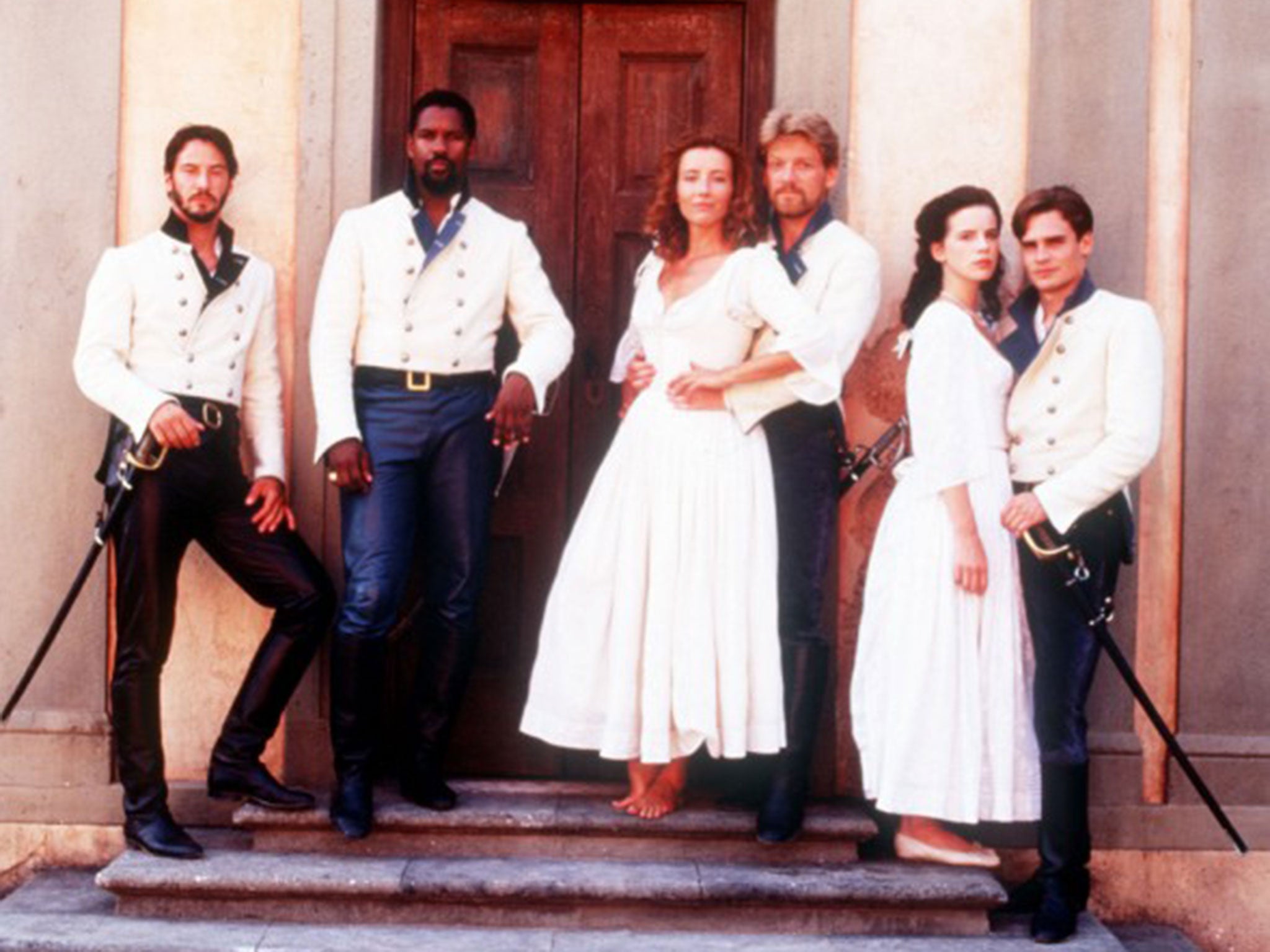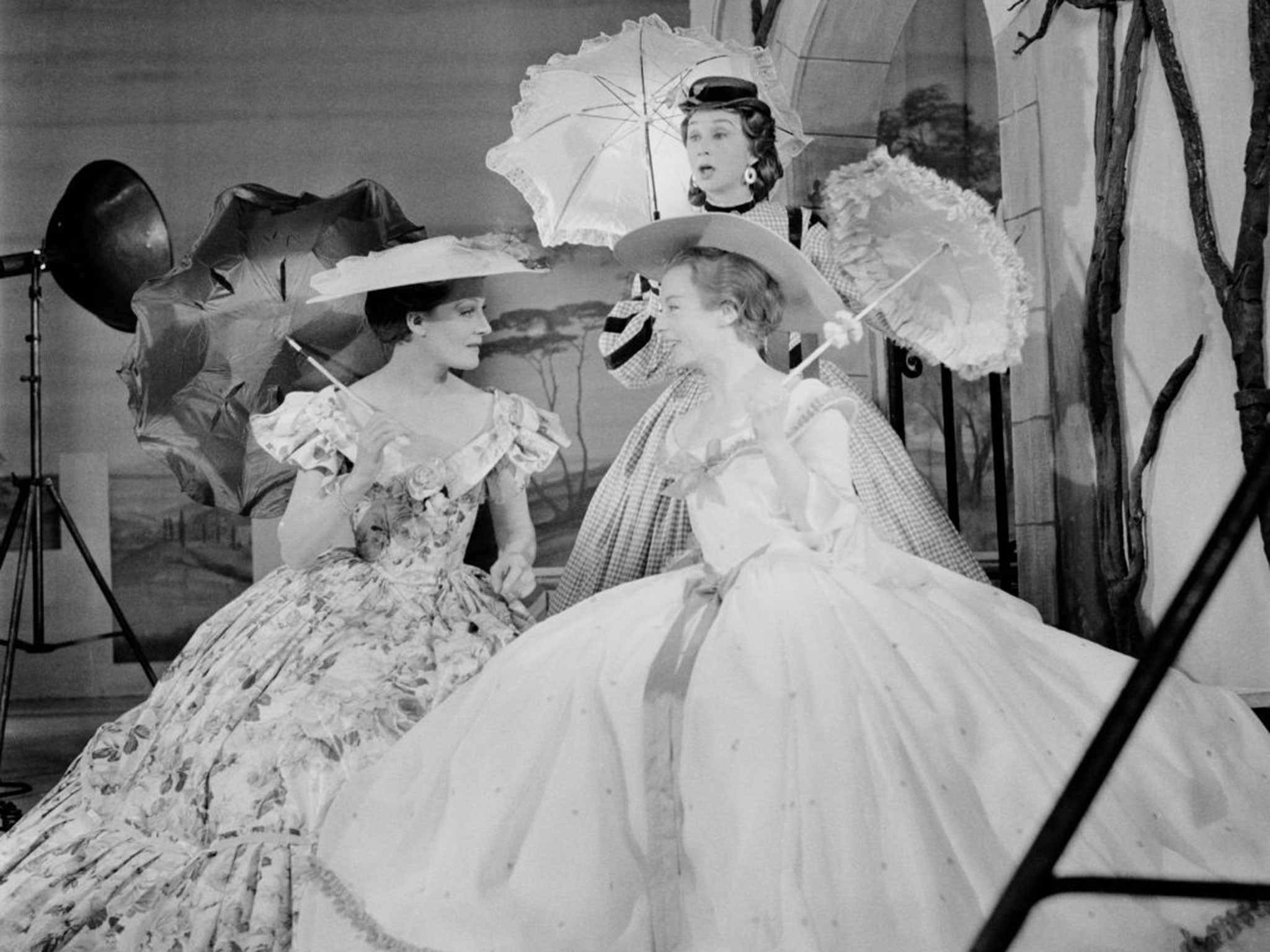Much Ado About Nothing: A delightful and empowering lesson in love
William Shakespare's comedy of romance between equals feels as joyously liberating as ever

Generations of school children have been force-fed a diet of Shakespearean tragedy. If you were lucky, it was the family saga in the castle at Elsinore that landed on your desk when you were 14: not bad as a way into matters of jealousy, anger and revenge – but at three hours long it’s a bit of a commitment.
If you drew the really short straw, your introduction to the playwright was the love story of Romeo and Juliet, one of the least convincing infatuations in all literature. Love, we learn here, must be painful to be true. Women faint and swoon. Men die in their quest for heart’s desire. Love is, above all, a sober business.
But real love isn’t much like that. It’s as much a compulsion of the head as it is of the heart, and the plays that explore that truth are far richer and more rewarding. They’re certainly a better education. So why aren’t more schools listing Much Ado About Nothing in the curriculum?
If the star-crossed lovers are the blockbuster crowd pleaser, then Much Ado is Shakespeare’s offbeat commentary on the battle of the sexes, an ode to the pleasures of intellectual warfare as a form of flirtation. It is a tribute to lust expressed through language as much as through the loins. In life, as in literature, there’s a lot of fun to be had with that. If more young women were reminded that they can argue themselves into bed far more effectively than by batting their eyelashes, we’d live in a healthier society.
The other important lesson is that it’s possible to experience the emotion we call “love” as irritation, frustration and hatred. It takes a mature mind indeed to distinguish fascination from disgust, for there’s little difference between them.
The relationship between Benedick and Beatrice – their names a partial mirror to one another – is complex, yet at its root it is also fairly straightforward: they are a pairing of sexual and intellectual equals, who can recognise themselves in one another. What they like about themselves, they like about the other. It is a relationship based on self-respect – and that’s a role model every young reader should have.
Their pairing is so influential to our understanding of the male-female relationship that we see them pop up time and again in popular culture. No wonder Wyndham’s theatre in London cast David Tennant and Catherine Tate as the combative couple in 2011 – they were merely reprising a similarly boisterous partnership in the BBC’s Doctor Who.
What feels quite natural now must have been quite shocking at the time of Shakespeare’s first production. For the playwright to draw a woman as an equal player in her own romantic destiny (and her own emotional confusion) was no small statement, but it’s no accident. The point is made even clearer by the contrast between Beatrice and her sparring partner and the other leading couple in the play: the timid, subservient Hero (hardly!) who is, in essence, entering into an arranged marriage with the equally emotionally illiterate Claudio.

I first encountered the quarrelling couple when I was 17. Forget the suicidal Ophelia and the love-drunk Juliet, driven to madness and eventual death by mere men: here was the sort of Shakespearean heroine I could identify with. Beatrice sparked a flicker of the feminism that would develop over the coming years.
Beatrice is a woman of today. And Benedick, the man who acknowledges and yet discards some of the single pleasures and entitlements of being born male in order to be with her, has lessons for young men too.
So here is a rallying call to all English teachers and examination boards: give them Much Ado About Nothing. In a world where the young women you teach feel as judged on their appearance and how they deploy it as they do on their wit and how they employ it, remind them that the strongest partnerships are always based on the mind.
After all, “You and I are too wise to woo each other peacefully.”
Join our commenting forum
Join thought-provoking conversations, follow other Independent readers and see their replies
Comments
Bookmark popover
Removed from bookmarks